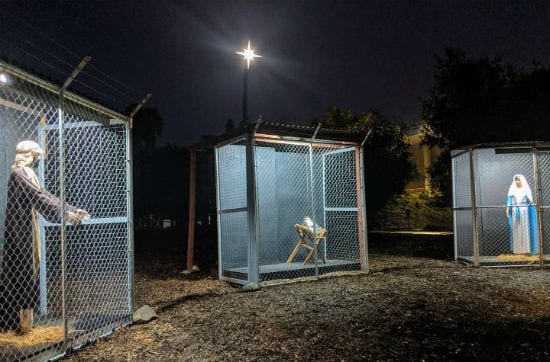In an op-ed column in today's New York Times, David Brooks offers a preemptive defense of American resolve in the face of atrocities yet to be committed by Americans.
Brooks argues that such atrocities will be a necessary and vital component of America winning the war in Iraq, which is also, he says, "the Battle of Midway in our war on terror."
The president will have to remind us that we live in a fallen world, that we have to take morally hazardous action if we are to defeat the killers who confront us. It is our reponsibility to not walk away. it is our responsibility to recognize the dark realities of human nature …
The primary obstacle to winning the war in Iraq, Brooks argues, is a lack of resolve. And the primary threat to that resolve, he says, is our sentimental, mushy attachment to morality, the Geneva Conventions, International Humanitarian Law, concepts like honor and humanity, a precious concern for the moral and mental health of our own troops, and the contricting principles of the just in bello standards of the ancient just war tradition.
This is moral cowardice masquerading as bravado. Brooks, while attempting unconvincingly to adopt an air of macho, "hard-headed realism," is clearly terrified and desperate. He is so wide-eyed with terror that he has soiled himself — ethically if not literally.
"Hope is not a plan," the saying goes. But Brooks does not counsel hope, he counsels despair. Well, despair is not a plan either.
Brooks tries, and fails, to couch his argument in the terms of pragmatism and realism. He seems to imagine himself as Jack Nicholson in A Few Good Men, bellowing "You can't handle the truth!" But for all his posturing, he says nothing more, and nothing more sophisticated, than what Sen. Trent Lott recently said:
Honestly, it's a little tougher than I thought it was going to be. If we have to, we just mow the whole place down, see what happens. You're dealing with insane suicide bombers who are killing our people, and we need to be very aggressive in taking them out.
Lott is more honest than Brooks. His call for indiscriminate slaughter makes clear the premise for his conclusion that atrocities are acceptable: "It's a little tougher than I thought it was going to be."
For the sake of argument, bracket all consideration of the rule of law, all thoughts of honor, justice and humanity. Bracket all concern for the young people Brooks would ask to commit unforgettable acts of horror and all concern for the civilians who would suffer those acts. Pretend there is no such thing as international law, or natural law, or any law, and simply consider Brooks' argument according to its own alleged pragmatism where the only standard relevant is whether or not something works. Would this work? Does the path Brooks wants us to follow lead to anywhere near a safe, free and prosperous future for Iraq? Would it increase America's national security and reduce the threat of international terrorism?
No, no and no.
Consider the words of Lt. Gen. Moshe Yaalon, the highest-ranking military officer in Israel: "In our tactical decisions, we are operating contrary to our strategic interests," he said.
"It increases the hatred of Israel and strengthens the terror organizations," he said.
In other words, Ariel Sharon's cowardly Brooksian dismissal of the rule of law does not work.
This article on the misgivings expressed by many of Israel's top military officers provides a much-needed slap-down of Brooks' armchair bravado. Soldiers — real soldiers — do not suggest what Brooks suggests. They do not accept what he accepts or defend what he defends.
Explaining Yaalon's remarks, one "senior military official" said: "He felt it was his public duty to say that if we don't do something about this, then it will explode in our face. … The war against terror is taking place on the backs of civilians."
There's a twofold argument in that statement: Soldiers do not harm civilians because it is unwise and counterproductive; and soldiers do not harm civilians because that is what it means to be a soldier.
Yaalon's remarks, echoed by equally vociferous criticism from other military officers interviewed Thursday, revealed a schism between military and political leaders over the government's handling of a conflict that many officers and soldiers say they believe is not winnable through military force, incites more terrorism than it prevents and mistreats innocent Palestinians. Almost 900 Israeli citizens or foreign residents of Israel have been killed in attacks by Palestinians, and Israeli military forces have killed about 2,500 Palestinians.
"We're in a more serious situation that the U.S. was in Vietnam," said reserve Brig. Gen. Yiftah Spector, one of the most decorated fighter pilots in Israeli military history. Spector was grounded as a flight instructor last month after signing a letter, along with 26 other reserve pilots, calling the military's targeted killings of militants in crowded civilian neighborhoods "illegal and immoral."
Israel's military policies in the Palestinian territories, Spector said, are "opposing everything I was raised on" during his career in the air force.
Spector is expressing the frustration of a soldier who wants to fight for victory with honor, but who has been told — by petty little men like David Brooks — that he must instead follow a dishonorable path to defeat.












